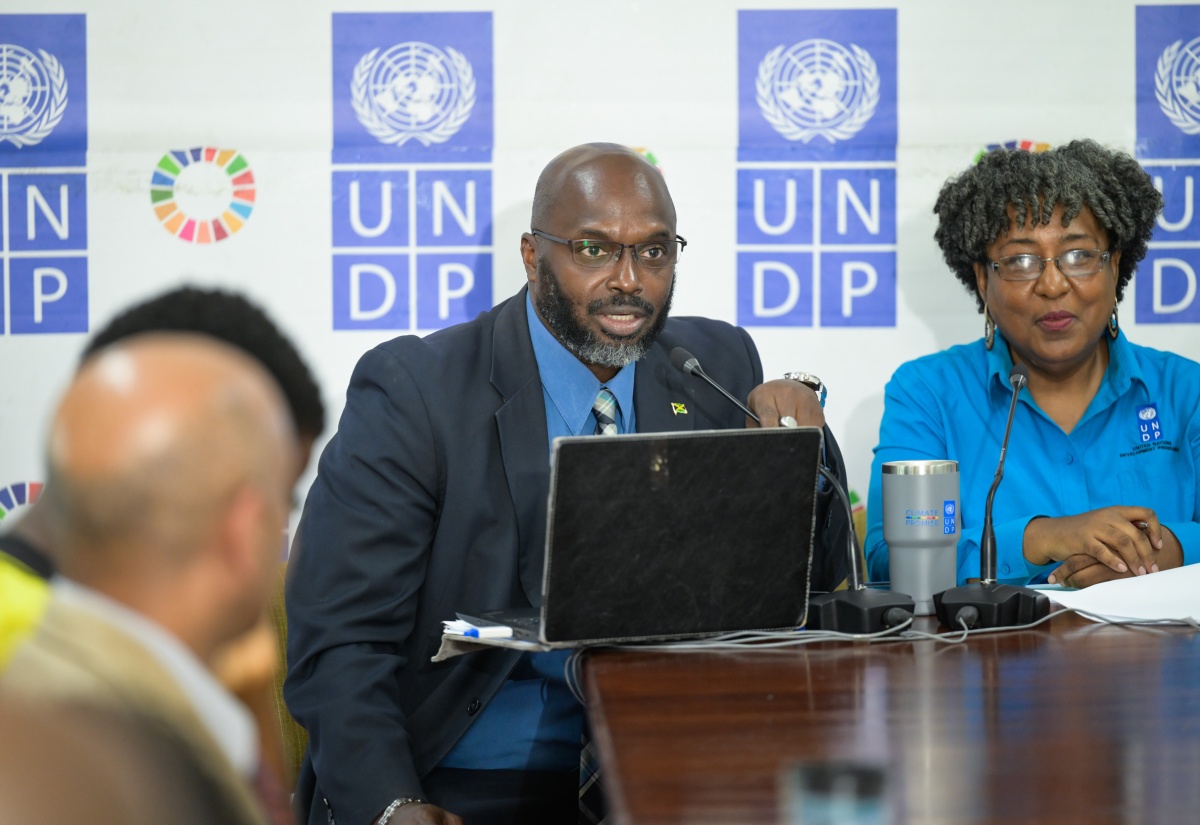MSMEs Encouraged to Create Business Continuity Plans
By: , June 11, 2025The Full Story
Entrepreneurs in the micro, small and medium-sized enterprise (MSME) sector are being encouraged to create business continuity plans to boost their resilience to a major storm or hurricane.
The advice came from Acting Director General at the Office of Disaster Preparedness and Emergency Management (ODPEM), Richard Thompson, who was a panelist at the United Nations Development Programme (UNDP) Hurricane Ready & Resilient forum on Tuesday (June 10).
The event, held at the UNDP’s Multi Country Office in Kingston, engaged MSMEs on the topic of hurricane loss and damage.
Mr. Thompson pointed out that MSMEs account for approximately 97 per cent of businesses in the country and provide nearly 80 per cent of employment for the Jamaican workforce, making them an extremely important part of the economy.
At the same time, MSMEs are disproportionately vulnerable to hurricane impacts because of their informality, size, limited resources and inadequate access to financing, insurance and disaster preparedness, making business continuity planning even more essential.
“So, in terms of business continuity planning, it’s really a strategy that focuses on or ensures that the businesses are able to operate or to continue during or after any kind of disruptive event,” the ODPEM Acting Director General explained.
He outlined that effective business continuity planning should concentrate on the procedures necessary for maintaining business function, protecting business assets, safeguarding overall employment procedures, and ensuring that there is effective communication with customers.
This is important in minimising business downtime and improves the ability to restore normal function in the shortest possible time.
“It’s really a deliberate process to ensure that the businesses are anticipating, they are mitigating against issues, they are resolving issues regarding the effects of disasters that will impact the business,” he pointed out.
Mr. Thompson noted that one critical aspect of business continuity is ensuring that businesses plan their recovery process.
As such, owners and operators should make sure that all important documents, plans and business concepts are stored securely in the event of a natural disaster.
“One other thing as well that businesses have to pay critical attention to is what is called single point of failure. One of the things that we have noticed for a very long time and it was highlighted during [Hurricane] Beryl, is that energy generation, especially around electricity, is the critical point of failure for a lot of businesses,” he pointed out.
The ODPEM Director said it is, therefore, important that businesses, especially those that rely heavily on electricity, have a back-up plan for power generation.
Another crucial element that is often overlooked by small entrepreneurs, he noted, is ensuring that businesses are registered so they can receive benefits from the State.
“A lot of small farmers are not registered. So, because they are not registered, it becomes difficult after a disaster for them to get grants coming out of RADA (Rural Agricultural Development Authority) and the Ministry of Agriculture, Fisheries and Mining” Mr. Thompson said.
In her remarks, Permanent Secretary in the Ministry of Local Government and Community Development, Marsha Henry-Martin, emphasised the importance of providing support for MSMEs to navigate disasters.

She pointed out that it is also important to understand the individual realities and unique characteristics of each business, their locations and their vulnerabilities.
“As a Local Government Ministry, with responsibility for local communities, one of our mantras is that we’re not leaving anybody behind… every community matters, every district matters… every individual matters. Their quality of life must always be at the forefront, and whatever it is that they do to sustain themselves is what we should nurture,” the Permanent Secretary said.
She noted that the Ministry must ensure that the Comprehensive Disaster Risk Management Policy, which is being finalised, sufficiently considers MSMEs and their sustainability.





